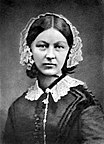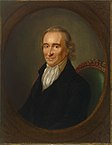GREAT BRITONS - A PERSONAL CHOICE
- Jun 1, 2018
- 5 min read
“There’s but one thing the world has need to know. There’s but one balm for all our human woe; There’s but one way that leads to heaven above. That way is human sympathy and love.”
—Max Heindel
IN THE BRITISH Daily Mirror of August I2, 2002, appeared the names and photographs of 100 people whom the BBC’s poll has rated the greatest Britons of all time. Glancing through the names, we can certainly find great personalities. However there might be equally great people whose lives were so obscure that but few people knew them and could attest to their virtue and excellence. But because the BBC program directs us to choose from among the 100 that appeared in the national newspaper, I have selected these four people: Sir Isaac Newton, William Shakespeare, Florence Nightingale, and Thomas Paine—The Sublime Quartet.
“Sir, I have studied the subject [Astrology], you have not.”—Isaac Newton
“His life was gentle and the elements so mixed in him that Nature might stand up and say to all the world, ‘this was a Man!’”—William Shakespeare
“I desire for a considerable time only to lead a life of obscurity and toil, for the purpose of allow- ing whatever I may have received of God to ripen.”—Florence Nightingale
“The world is my country, to do good is my religion.”—Thomas Paine
There is a short story in a book written about the great Indian emancipator, Mahatma Gandhi. It
goes like this. When Gandhi was in London to negotiate with the British Government about the transfer of rule to the Indians, a small girl asked him for his autograph. As the lover of mankind was writing the autograph, the little girl looked at the man in cloth and his piercing old spectacles, then turned to her mother and asked; “Is he the great man”? True greatness is a measure of the soul. Some people may be considered great who have been successful in the affairs of the world. This is well, for such people might help other people by their material wealth.
However, in philosophical terms, greatness is measured by the quality of the soul, irrespective of whether or not that person is successful in the ‘world.’ I have therefore chosen my great quartet in the light of occult philosophy, and hence other people might judge otherwise. Let us scrutinize the lives of these people through what they said, as quoted above.
Sir Isaac Newton was a man of mystery. He was an academic as well as an alchemist. He spent almost forty years working in the laboratory in Cambridge. He studied the occult arts. One day, when someone was arguing with him about the subject of astrology, he gave the famous quote: “My friend, I have studied the subject, you have not.” This shows that he was knowledgeable about the Divine Science. This is the science for noble people. It is no wonder that another philosopher once said, “The purer your life, the better would your judgement be.” Isaac Newton was a man of noble character. Indeed he was alchemically making the philosopher’s stone within himself. Is it any wonder he left posterity some great scientific discoveries, including the universal law of gravitation, which have helped to make the world a happier place to live? What this pioneer scientist did for mankind is incalculable. The following statement in connection with the creation story in Genesis was credited to Isaac Newton by one contemporary priest: “Nature and nature’s laws lay hid in darkness, God said let Newton be, and all was light.” May other scientists follow in his footsteps in order to make the world more habitable.
The genius of William Shakespeare is certainly indisputable. It is said that the controversy about the similarity between the writings of Francis Bacon and the Bard of Avon is that both were influenced by the same Initiate. Only a great soul can receive such divine instructions from on high. The words spoken by Mark Anthony to Brutus regarding the slain emperor in Julius Caesar could only have been penned by one who was in possession of esoteric knowledge. These four “elements” must be alchemically balanced in every individual before an Adept’s body can be fashioned. The Master Jesus had prepared just such a body for the Christ Spirit. At His crucifixion in the body of Jesus, these four elements, denoted by the letters I.N.R.I., which were inscribed above His head on the cross, indicated an optimum development of the chemical, life, light, and reflecting ethers that com- prise the human vital body. Shakespeare’s plays can be read and fully comprehended only in light of esoteric knowledge.
Now, let us listen to the feminine servant, Florence. She desired only to live in obscurity and to toil so that other people might be happy. She responded to her calling at about the age of seventeen and, true to her resolve, she dedicated her entire life in nursing and caring for the sick. She also wrote prolifically in her chosen field. By her luminous example and tireless urging, she has helped to bring about many reforms in patient care. Her work will live forever. Many people the world over have found inspiration through her exemplary life and her tireless devotion to the sufferer and the forgotten. Her love for nature (especially animals) and mankind was immeasurable. Her self-forgetting life of service surely was informed and fortified by a Higher Power.
Of that maligned Thomas Paine, what can one say? Only a genius and servant of humanity could have written the book entitled The Age of Reason, and could also avow, “The whole world is my country, to do good is my religion.” Paine was a wanderer indeed—and an Aquarian. He had reached the stage on the path described by the Master when He said, “Foxes have holes, birds of the air have nests, but the son of man has no place to lay his head.” How many people in the world at present can say in their hearts that the world is their country? Indeed, Thomas Paine was great. He was a planetary man.
In conclusion, I would like to say that the consciousness of these four people transcended national boundaries. Each had a vision of wholeness, whether that vision was expressed from a scientific, artistic, philosophic, political, or medical perspective. We know the world is gradually changing for the better because of the ideals and practice of these pioneer souls and many others whose service is unrecorded. May all thinking people, the world over continue to use reason blended with love to resolve all world conflicts, so that good may completely overcome evil and peace and harmony reign supreme.
Emerson has given us this beautiful thought: “What your heart thinks great is great. The soul’s emphasis is always right.”
First published in Rays of the Rose Cross 2003.
















































Comments